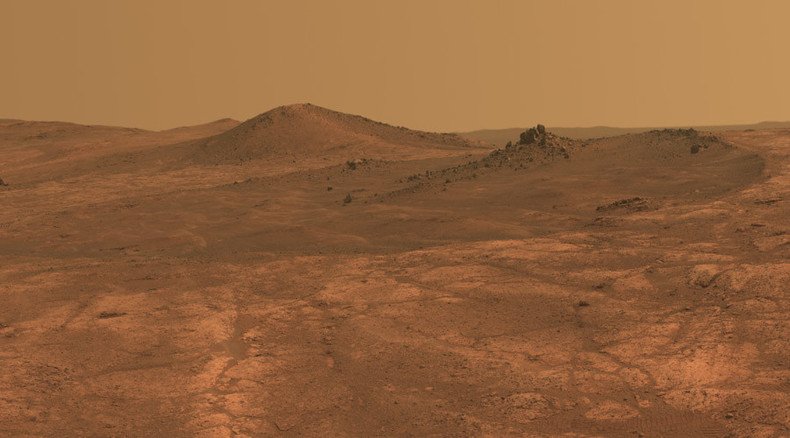Nuke Mars! Elon Musk offers ‘solution’ to fast track human settlement

Elon Musk dropped some hot comments on the Stephen Colbert show, suggesting nuking Mars and calling it a ‘fixer-upper’ planet, proving his celebrity status by kicking off the show's second episode.
The famed tech entrepreneur joined Stephen Colbert, fresh into taking over ‘Late Night’ from David Letterman, sharing his ambitious plans for the Red Planet. Among other things he casually suggested blasting Mars with a nuclear bomb.
The founder of PayPal, Tesla and SpaceX dreams of a space era of reusable rockets. This could significantly drive the costs of space travel down, making Mars a probable destination for as many as a million people, according to Musk.
Hawking, Musk, Wozniak warn of global AI arms race as ‘Kalashnikov of tomorrow’ http://t.co/DtHqkcMLBcpic.twitter.com/IEgg1y5B19
— RT (@RT_com) July 28, 2015Musk explained how in order to make the red planet hospitable for humans it should be heated up and the fast way to success was none other than an atomic bomb.
“The fast way is to drop nuclear weapons over the poles,” he said. There is also a longer, tried and tested on Earth way to heat Mars up: to cause climate change by flooding the planet with greenhouse gases.
The transport of choice to reach the planet would of course be - the SpaceX reusable rocket. Elon Musk didn't flinch when asked about the spectacular failure of the ship’s test. SpaceX tipped over and exploded on landing.
#VIRAL: Elon Musk's Hyperloop to start construction in 2016 http://t.co/KVc4yLqlujpic.twitter.com/x9bjwj5BpF
— RT (@RT_com) August 23, 2015Back on Earth, Elon Musk is busy working on a futuristic transportation system that’s faster than an airplane. It’s called the Hyperloop - aluminum passenger pods that would travel in steel tubes mounted on pylons. A public opening of the 5-mile test track in Quay Valley, California is slated for 2018.
As for SpaceX, Musk says the rocket will be up and running in three years and he sees it taking NASA astronauts to the International Space Station. At the moment NASA astronauts reach the ISS via Russian Soyuz rockets.












